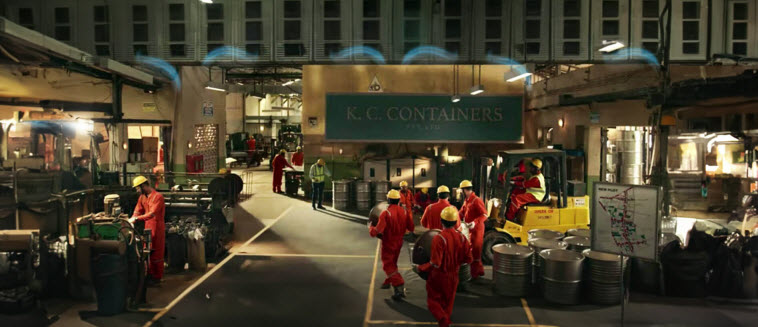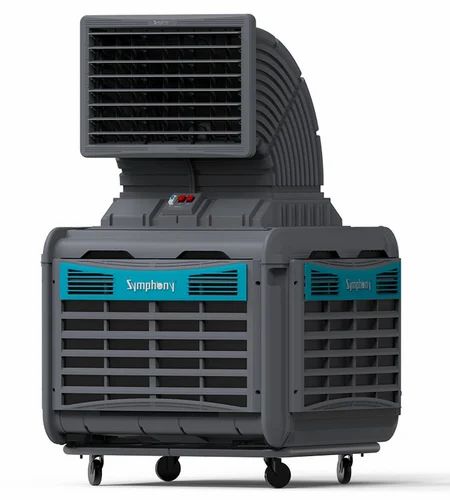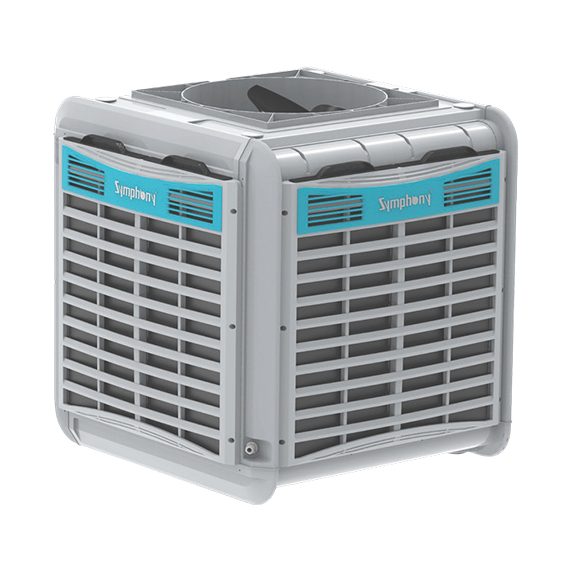How to Choose the Best Industrial Air Cooler?

Industrial air coolers offer powerful cooling solutions for a variety of large spaces, from manufacturing plants to warehouses and more. In this guide, we'll delve into the factors you need to consider to select the best industrial air cooler for your needs.
Introduction to Industrial Air Coolers
Industrial air coolers, also known as industrial evaporative coolers or swamp coolers, are designed to provide effective cooling over expansive areas. Unlike traditional fans or desert coolers, industrial air coolers utilize the natural process of water evaporation to produce cool air, making them more efficient and eco-friendly.
Types of Industrial Air Coolers
There are two main types of industrial air coolers:
Portable Industrial Air Coolers
Portable industrial air coolers are standalone units equipped with large cooling pads and powerful industrial-grade motors. These coolers, also known as portable evaporative coolers, are ideal for dry climates and are commonly used in spaces such as garages, warehouses, and manufacturing units. They offer significant airflow capacity, typically ranging up to 18000 CMH, while consuming less electricity compared to air conditioners.

Ducted Industrial Air Coolers
Ducted industrial air coolers are larger in size and designed for commercial and industrial settings. They come in various configurations, including top throw, side discharge, and down discharge coolers. With airflow capacities ranging from 10000 CMH to 30000 CMH per unit, ducted air coolers are suitable for cooling vast areas efficiently.

Factors to Consider When Choosing the Best Industrial Air Cooler
Case Thickness and Material: Opt for industrial air coolers made from high-quality materials with thicker casings for durability and longevity.
Cooling Pad System: Choose cooling pads of appropriate size and thickness to ensure optimal cooling performance.
Type of Material Used for Motor Winding: Prefer industrial air coolers with motors featuring 100% copper windings for efficient operation and longevity.
Airflow Volume: Verify the advertised airflow volume to ensure it meets your cooling requirements accurately.
Additional Considerations
Aside from the main factors mentioned above, consider other aspects such as:
Brand and Model Selection: Research reputable brands and models known for their reliability and performance.
Budget Consideration: Determine a budget that aligns with your requirements and explore options within that range.
Size Requirement: Choose an industrial air cooler that matches the size of your space for optimal cooling efficiency.
After-Sales Service: Look for vendors that offer comprehensive after-sales support and warranty coverage.
Conclusion
Selecting the best industrial air cooler involves evaluating various factors such as case thickness, cooling pad system, motor winding material, and airflow volume. By considering these factors alongside additional considerations like brand reputation, budget, size requirements, and after-sales service, you can make an informed decision that ensures effective cooling for your industrial or commercial space.
FAQs About Industrial Air Cooler
Yes, industrial air coolers typically consume less electricity and offer a eco-friendlier cooling solution compared to air conditioners.
Industrial air coolers made from high-quality materials can have a lifespan of up to 10 years or more.
While industrial air coolers are most effective in dry climates, they can still provide some degree of cooling in humid conditions.
Consider factors such as the square footage of the area to be cooled and the airflow capacity of the cooler to determine the appropriate size.
Yes, regular maintenance such as cleaning the cooling pads and checking the motor components is essential to ensure optimal performance and longevity.



